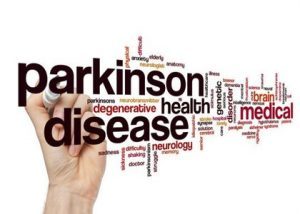- Home
- Editorial
- News
- Practice Guidelines
- Anesthesiology Guidelines
- Cancer Guidelines
- Cardiac Sciences Guidelines
- Critical Care Guidelines
- Dentistry Guidelines
- Dermatology Guidelines
- Diabetes and Endo Guidelines
- Diagnostics Guidelines
- ENT Guidelines
- Featured Practice Guidelines
- Gastroenterology Guidelines
- Geriatrics Guidelines
- Medicine Guidelines
- Nephrology Guidelines
- Neurosciences Guidelines
- Obs and Gynae Guidelines
- Ophthalmology Guidelines
- Orthopaedics Guidelines
- Paediatrics Guidelines
- Psychiatry Guidelines
- Pulmonology Guidelines
- Radiology Guidelines
- Surgery Guidelines
- Urology Guidelines
Elderly IBD patients 22 percent more likely to develop Parkinson’s disease

A new study published in the journal Gut has reported that older patients with inflammatory bowel disease (IBD) were associated with an increased risk of Parkinson’s disease.
Patients 60 years or older were found to have a 22% higher risk of developing Parkinson’s. However, there is no clear evidence whether the same association exists for patients ages 59 or younger.
The chronic activation of pro-inflammatory mechanisms, which occurs in autoimmune conditions, has been increasingly recognized as a critical contributor to neurodegenerative disorders.
Read Also: New revolutionary treatment for Parkinson’s now available in India
The study supported the theory that intestinal environment could influence the function of the central nervous system which was also called the gut-brain axis-the two-way communication between the nervous system and the intestine that monitors gut function and links certain regions of the brain to intestinal functions, such as immune activation or intestinal permeability.
Few studies have already reported that patients with IBD are 22-41% more likely to develop Parkinson’s than those without IBD.
However, a case-control study that examined Medicare data from 89,790 Parkinson’s cases and 118,095 population-based controls suggested that IBD actually reduced the risk for Parkinson’s by 15%.
In order to have a more clear picture of this association, researchers from China reviewed all studies investigating the link between IBD and the risk of Parkinson’s. Five studies met the inclusion criteria defined by the team, including a total of 9,174,766 participants.
The analysis showed that overall, IBD patients did not have a significantly higher risk of Parkinson’s than reference individuals, nor did patients with ulcerative colitis or Crohn’s disease.
However, patients 60 years or older were found to have a 22% higher risk of developing Parkinson’s. Patients 50 years or younger did not show this association.
“Our meta-analysis showed that patients with IBD did not have an increased risk of PD; however, subgroup analysis with cohort studies showed that they might be associated with increased risk of PD,” the researchers wrote.
“Age has been regarded as an important risk factor for Parkinson’s disease,” they added, but the findings suggest that “age at IBD diagnosis might be a risk factor of Parkinson’s disease.”
Read Also: Appendix removal in early life reduces risk of Parkinson’s disease
It was interesting to note that some studies reported medication-related side effects in the IBD population that resembled parkinsonism in the older population.
“It is necessary to take it into consideration whether older people will take more medications, and whether these medications lead to a higher risk of Parkinson’s also needs further studies to verify in the future,” they said.
The authors warrant the need for additional well-designed observational studies is to further explore the risk of Parkinson’s disease within the younger IBD population.
For full information log on to http://dx.doi.org/10.1136/gutjnl-2018-317103

Disclaimer: This site is primarily intended for healthcare professionals. Any content/information on this website does not replace the advice of medical and/or health professionals and should not be construed as medical/diagnostic advice/endorsement or prescription. Use of this site is subject to our terms of use, privacy policy, advertisement policy. © 2020 Minerva Medical Treatment Pvt Ltd